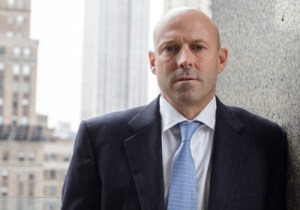CBRE Tristate President Matt Van Buren on the Megadeal’s Comeback and the Post-Sandy Summer
By Billy Gray February 20, 2013 8:00 am
reprintsIt will be two years ago this summer that Matt Van Buren succeeded Mitch Rudin as CBRE’s tristate president. The Commercial Observer spoke with Mr. Van Buren about the state of the region—and of the Yankees—as the area prepares to emerge from its long, cold winter of discontent.
Since taking over as CBRE’s tristate president, what has been your biggest accomplishment and biggest setback?
I took over for a tristate region office that was in really good condition following Mitch Rudin’s presidency. The biggest accomplishment has been keeping that momentum going forward. When you’re number one, the goal is to stay number one. And we’ve been able to do that. Staying number one is one of the great unsung stories of the world. That’s why I respect the 2000 Yankees so much. [Laughs]
You run CBRE’s offices in Midtown, Downtown, Long Island, Westchester, New Jersey and Connecticut. Do the fortunes of the different metro area hubs often diverge or does a rising tide lift all boats?
To a certain degree it does. Although the highs are higher and the lows are lower in Manhattan. If you look at rents and availability statistics, Connecticut, Westchester, New Jersey and Long Island vary in a fairly narrow range even from boom to bust.
Frankly, New York will always have lower availability. But the prices will fluctuate high and low if you took a percentage off of a norm.

CBRE is known for its research department. And last October the firm released a report on the decline of large deals in Manhattan. Is this a long-term trend?
No, I don’t think the dearth of megadeals is a long-term trend. Depending on how wide you adjust your aperture on timeframes you can always find a trend that may mean something. I don’t think it’s true. Look, we have a lot of large occupiers in the city. Leases expire, and large leases expire.
Having said that, there absolutely is a trend of tenants occupying less space per employee. And that will accelerate. This doesn’t completely changes the business, but it does shave 10 percent off occupancy.
As a counterbalance to that I’ll say that global cities like New York will continue to benefit from the way the global economy is evolving, which is consolidation of talent in major urban areas. So I look and say the outlook for New York continues to look really good. There will be ups and downs. But I think in 2013 we’ll see quite a large number of mega deals.
Can you mention any particular upcoming deals?
I can’t go into the specifics of single deals. But there are real, major deals in the legal, banking and advertising industries that are playing out against Hudson Yards, 1 World Trade Center and World Financial Center, which is an emerging and interesting story. I wouldn’t say they’re imminent, but they’re approaching imminent. They’re potentially first quarter deals.
How do you see the first post-Sandy summer playing out across the tristate region?
What’s clear to me is that on both sides of the Hudson River—in New York and New Jersey—there’s unprecedented levels of activity trying to recover from the storm, particularly in those areas whose well-being is affected by seasonal business. It’s a race against time and extraordinarily changing.
You’ll see mixed results. Some places will look like postcards of miraculous recovery; some won’t have gotten off the mark. I do think that the local economy has absorbed the brunt of this unprecedented event actually quite well relative to what we thought two weeks after it was done.
The classic New York area resilience has really come to fore.
And what are your current thoughts on the Midtown East rezoning proposal and its likelihood of approval?
I think its approval over the long-term horizon is inevitable. The real question is: what’s the horizon? There’s interest for and against it. And in general, people who are in the real estate services business are for it as an opportunity to revitalize a key part of the city. That said, there’s opposition from those who would have additional competition against the properties they own should rezoning happen.
I think the shorter-term in part is informed by politics and the change in local government at the end of the Bloomberg administration.
On that note, do you have an early pick for mayor?
Yes, I do. But I’m absolutely not willing to share it. [Laughs]



